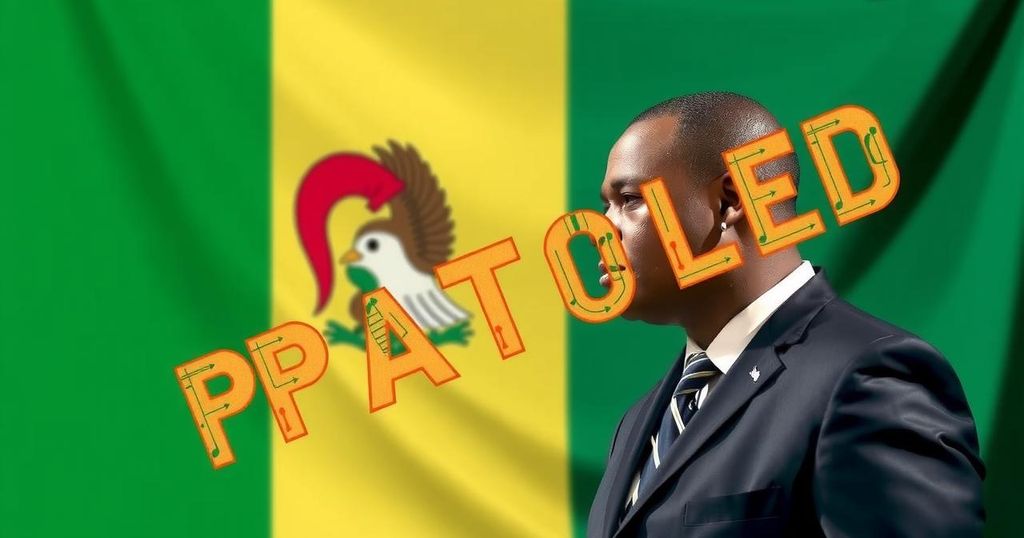Indefinite Postponement of Legislative Elections in Guinea Bissau
President Umaro Sissoco Embalo has indefinitely postponed the legislative elections in Guinea Bissau, initially set for November 24, highlighting the country’s persistent political instability and financial struggles. This decision follows a history of parliamentary tension and logistical issues, making the future of the electoral process uncertain.
On Monday, President Umaro Sissoco Embalo of Guinea Bissau announced the indefinite postponement of legislative elections that were scheduled for November 24. This decision extends the political uncertainty in the West African nation, which has experienced a year marked by instability. The elections were initially prompted by the dissolution of parliament in December 2023, following violent clashes that Embalo characterized as an attempted coup. In light of logistical challenges and financial constraints, expectations of a postponement had grown in recent days. The president officially revoked the decree for the elections, with a new timeline to be established later. Meanwhile, similar uncertainties surround the upcoming presidential elections, as the nation grapples with ongoing political turmoil despite recent advancements towards constitutional governance.
Guinea Bissau, one of the poorest countries globally, has remained ensnared in a cycle of political instability since gaining independence from Portugal. A history marked by corruption has further exacerbated these challenges. The recent political landscape has been complicated by a parliamentary coalition led by the African Party for the Independence of Guinea and Cape Verde (PAIGC), which has held a decisive majority since the June 2023 elections. This has forced President Embalo into a cooperative dynamic, marred by tensions between him and the PAIGC leadership. The nation’s struggle to finance electoral processes has added to these complications, leading to the recent postponement of legislative elections.
In summary, President Umaro Sissoco Embalo’s indefinite postponement of Guinea Bissau’s legislative elections underscores the ongoing political instability that the country faces. With prior elections leading to a politically tense environment and compounded by financial difficulties, the postponement reflects deeper structural issues within the nation’s governance. As uncertainty looms over both legislative and upcoming presidential elections, Guinea Bissau’s path toward political stability remains fraught with challenges.
Original Source: punchng.com




Post Comment